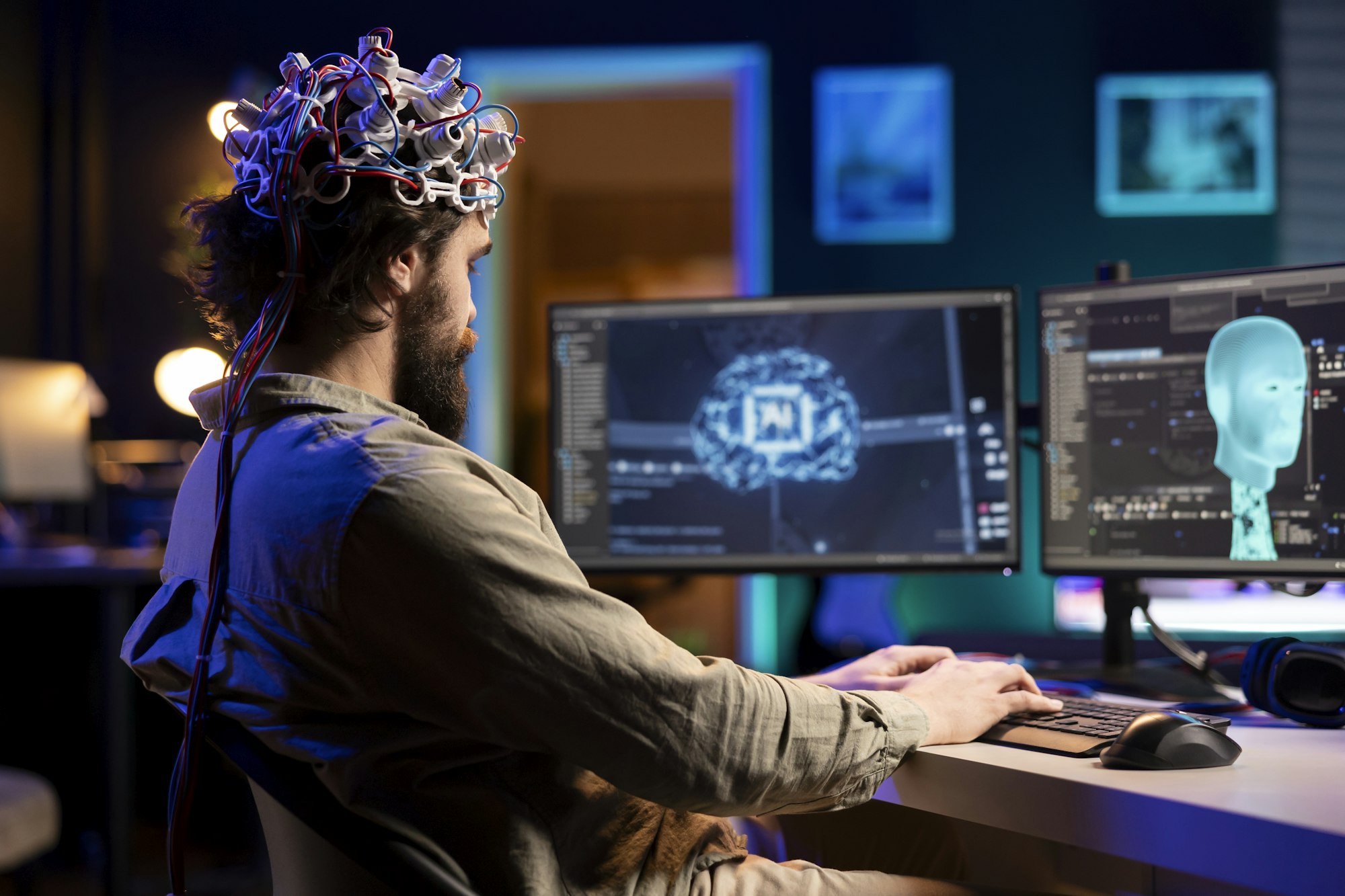Artificial intelligence (AI) is revolutionizing our approach to work, governance, and international relations. Sam Altman, CEO of OpenAI, is a key voice in this transformation, offering insights into the remarkable opportunities and risks presented by AI. This article distills Altman’s views on AI’s trajectory, referencing his recent engagements at events like Davos 2024 and various Congressional hearings.

Enhancing Productivity and Human Engagement
Altman underscores that AI, though still developing, has notably boosted productivity. Applications like ChatGPT have become invaluable tools in enhancing work efficiency. Yet, Altman cautions that AI is not without flaws and requires users to be vigilant of its limitations and errors.
A significant advantage of AI is its ability to articulate its decision-making processes, fostering a level of transparency that builds trust. Altman compares this to understanding a human’s thought process—it helps us gauge the reliability of their actions, even if we cannot see the inner workings of their minds.
Despite the advancements in AI, Altman firmly believes that it cannot substitute the genuine care and interpersonal connections that humans provide. He uses chess as an analogy, pointing out that while AI can master the game, human chess matches are more engaging and cherished due to the personal touch they offer.
Geopolitical Dynamics and AI
AI’s ascent is also reshaping global politics. Altman discusses how nations prioritizing AI development could dominate future economic and security landscapes, sparking a competitive rush for technological supremacy.
During a session at Brookings, Altman highlighted the potential for AI to enable highly targeted disinformation campaigns that could undermine democratic institutions and influence electoral outcomes.
The Imperative for Regulation and Ethical Oversight
Regulating AI is critical. Altman advocates for the establishment of a government body dedicated to AI safety, which would have the authority to issue licenses and enforce compliance among AI developers, ensuring systems are safe and not prone to misuse.
Furthermore, Altman stresses the importance of international collaboration in AI governance, proposing a global regulatory framework akin to the International Atomic Energy Agency, to manage AI’s risks and maximize its benefits effectively.
Economic Implications and Fair Compensation
The economic impact of AI, particularly regarding intellectual property and compensation for contributors, is another area of concern. Altman acknowledges the need for innovative economic models to ensure fair compensation for those whose work aids in training AI, such as educators and artists. Proposing profit-sharing models based on the utilization of AI systems could ensure equitable distribution of AI-generated wealth.
In essence, as AI continues to evolve, it is vital to balance innovation with strategic safeguards to exploit its potential fully while minimizing associated risks.

FAQ for “AI Unveiled: Navigating the New Frontier of Technology, Democracy, and Power”
1. How is AI currently enhancing productivity, and what are its limitations?
Answer:
AI, especially tools like ChatGPT, is significantly improving productivity by automating tasks, providing quick access to information, and aiding in decision-making processes. However, AI systems are not perfect—they can make mistakes and produce incorrect information. Users need to understand these limitations and be able to identify and manage errors effectively. AI’s ability to explain its reasoning processes helps build trust and reliability, making it a useful tool when its limitations are acknowledged.
2. What are the geopolitical implications of AI, and how might it affect global politics?
Answer:
AI’s development has major geopolitical implications, as countries investing heavily in AI technology could gain substantial advantages in economic and defense sectors. This has created a competitive landscape where nations strive to lead in AI innovation. AI could also impact global politics by enabling highly personalized disinformation campaigns, which pose threats to democratic processes and could be used to manipulate public opinion and disrupt elections.
3. Why is regulating AI important, and what measures does Sam Altman suggest for ethical AI governance?
Answer:
Regulating AI is crucial to ensure its safe and ethical use, preventing misuse such as self-replication or human manipulation. Sam Altman suggests creating a dedicated government agency to oversee AI safety, with the authority to license and regulate AI companies. He also advocates for international cooperation in AI regulation, proposing a global regulatory framework similar to the International Atomic Energy Agency. This would help manage AI’s risks and benefits on a worldwide scale, fostering a coordinated approach to its governance.
Sources The Washington Post


